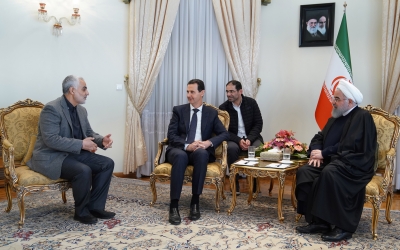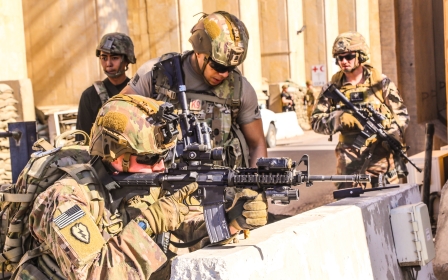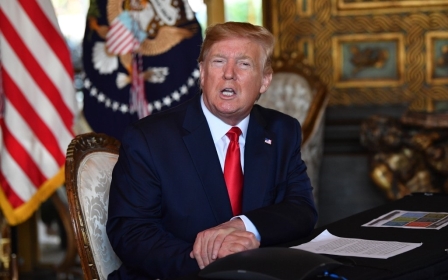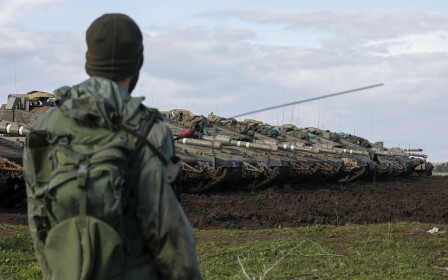Was it legal?: What US and international law say about Trump's strike on Soleimani
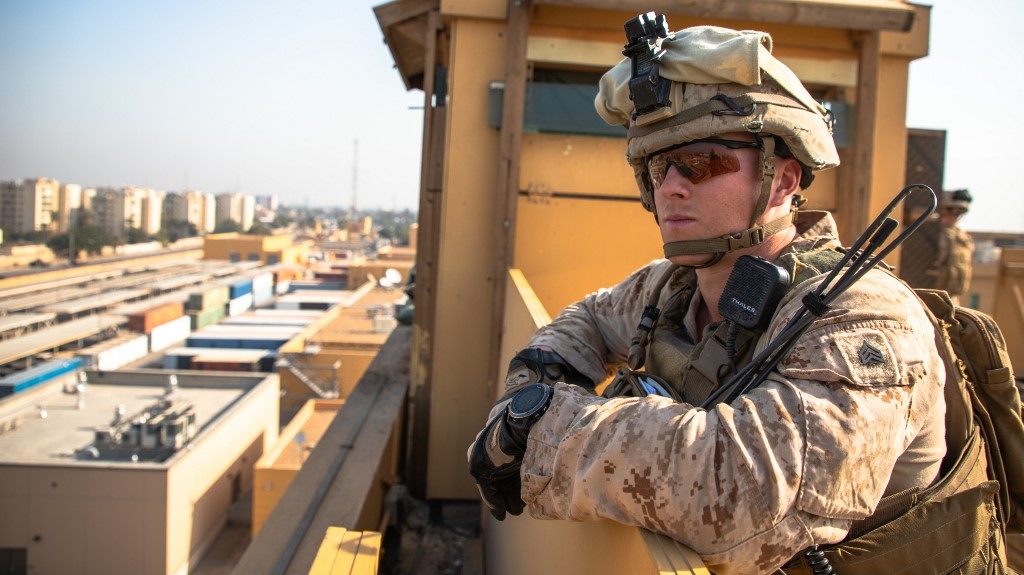
The targeted killing of Iranian general Qassem Soleimani has reignited debate within the United States and internationally about the legality of assassinations.
The Trump administration immediately justified the strikes that killed the Iranian general and seven of his associates, first describing Soleimani as a ruthless killer, and then saying the raid was in response to "imminent threats to American lives."
"General Soleimani was actively developing plans to attack American diplomats and service members in Iraq and throughout the region," the Pentagon said in a statement, adding that the killings were "defensive" strikes aimed at deterring future Iranian attacks.
Still, condemnation came swift and hard, most notably from Iran's neighbour, Iraq, which said the attacks had violated its sovereignty.
"The air strike on Baghdad airport is an act of aggression and a breach of Iraq's sovereignty," Prime Minister Adel Abdul-Mahdi said.
A few hours later, the UN Special Rapporteur on extrajudicial executions weighed in, slamming the Pentagon for violating international law.
International law
"The targeted killings of [Qassem Soleimani] and Abu Mahdi Al-Muhandis are most likely unlawful and violate international human rights law," Agnes Callamard said in a lengthy Twitter thread.
"Lawful justifications for such killings are very narrowly defined and it is hard to imagine how any of these can apply to these killings," she continued.
In the Pentagon's statement released after the strike, it said the targeting of Soleimani came by order of the president as a way of "deterring future Iranian attack plans".
Callamard asserted that such reasoning does not hold up under international law.
"Future is not the same as imminent, which is the time based test required under international law" to strike at any given target, Callamard said.
She explained that deadly force can only be justified under international law if it is strictly necessary to protect against an imminent threat to life.
"An individual’s past involvement in 'terrorist' attacks is not sufficient to make his targeting for killing lawful," she said.
The US's practice of targeted killing has long been under question in international law circles.
In the past, the US had defended its targeted killings against members of groups including the Taliban, al-Qaeda and the Islamic State group under the argument that they are non-state armed actors engaged in conflict with the US.
The US holds that it can target non-state actors anywhere, even on another country's land without their permission.
Still, Soleimani's Quds Force is an arm of the Iranian state and the US military's presence in Iraq is allowed by the Iraqi government only under certain conditions.
Iraqi Prime Minister Adel Abdul-Mahdi said the US strikes violated those conditions, calling the attack against Soleimani an act of aggression and a breach of Iraqi sovereignty.
Article 2(4) of the Charter of the United Nations says: "All Members shall refrain in their international relations from the threat or use of force against the territorial integrity or political independence of any state, or in any other manner inconsistent with the Purposes of the United Nations."
The UN's Callamard pointed out what she said was "another major problem" with the US strike: the lack of oversight from any legislative branch.
US law
From the US perspective, the legality of the assassination has become a highly debated topic among lawmakers, analysts and constitutional experts.
"While the President's constitutional authority as commander-in-chief is enormously important, determining the scope of that authority beyond what Congress has authorised implicates some of the most difficult, unresolved, and contested issues in constitutional law," professors Jack Goldsmith and Curtis Bradley wrote in the journal Harvard Law Review in 2018.
Democrats were quick to criticise the strike early on Friday, saying it should have been approved by Congress. Trump did not give so much as a prior notice about the strike, and has said before he does not need congressional approval.
"The American people deserve to know why President Trump has brought us to the brink of another war and under what authorisation," Adam Smith, chair of the House Armed Services Committee, said in a statement.
Some analysts have said that Trump has the authority to order such a strike, with the case being built on Article 2 of the US Constitution and precedents set by past US presidents.
The Constitution's second article allows the president to use military force in support of the national interest.
"There's a pretty clear-cut legal case, from the perspective of the executive branch, that if Trump were to take military action against Iran, it would be consistent with what the executive branch's authority is," Scott Anderson, a fellow at the Washington-based think-tank Brookings Institution, told Middle East Eye in September.
Former President Barack Obama bypassed Congress when he ordered military strikes on Libya in 2011; Trump did the same when twice ordering missile strikes on Syrian government targets.
Another piece of legislation that should be mentioned is the Authorisation for Use of Military Force (AUMF), passed during George W Bush's presidency in the aftermath of the 9/11 attacks.
The AUMF gave the White House vague, sweeping powers to wage war against perpetrators of the 9/11 attacks and their associates. Other AUMFs were passed for the two Gulf Wars and for the fight against the Islamic State group.
While the Trump administration has admitted Iran was not behind the 9/11 attacks, the ambiguity of the law may work in Trump's favour.
Furthermore, Trump designated Soleimani's Islamic Revolutionary Guard Corps (IRGC) as a terrorist group in April 2019 despite being a part of the Iranian military - a fact noted in the White House's announcement of the killing late on Thursday.
Middle East Eye propose une couverture et une analyse indépendantes et incomparables du Moyen-Orient, de l’Afrique du Nord et d’autres régions du monde. Pour en savoir plus sur la reprise de ce contenu et les frais qui s’appliquent, veuillez remplir ce formulaire [en anglais]. Pour en savoir plus sur MEE, cliquez ici [en anglais].



